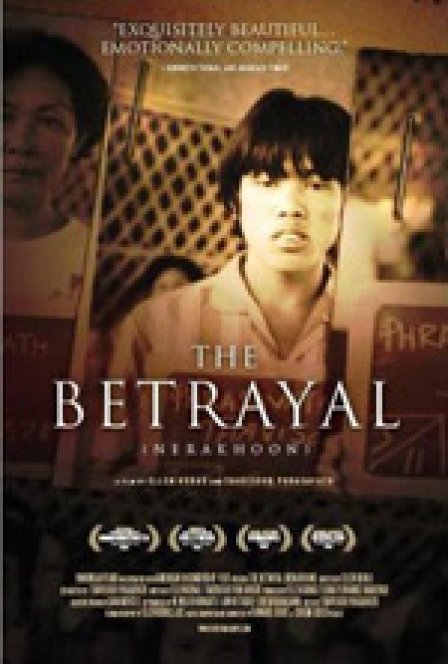"The time will come when the universe will shake. It will break piece by piece, country by country, religion by religion. Husband and wife will break into two. The children will escape, blowing like the wind. They will scatter to hide in the woods on islands like frightened deer hunted by evil men. The world we know will change... beyond recognition." -5000-year-old Lao prophecy.
The length of time spent on The Betrayal (Nerakhoon) is a relative anomaly in documentary filmmaking, surpassed only by ventures like Michael Apted's Up Series, which has been updated every seven years since 1964. That kind of time commitment allows the film's subjects to grow and change, offering them ample opportunity to reflect back on the events of their lives. Ellen Kuras and Thavisouk "Thavi" Phrasavath spent 23 years filming The Betrayal, the story of Thavi's family's journey from Laos to New York and the difficulties of settling into a foreign locale, and this lengthy period has the additional effect of dislocating Thavi increasingly further from the little boy he was in war-torn Laos.
In the late ’70s, Thavi's father, his hero, worked for the American secret war in Laos, calling bomb runs into his own country. When the Americans unexpectedly pulled out, they offered no assistance to their former indigenous helpers. The communist coup that followed led to unspeakable oppression and human rights violations, in addition to vengeance against the collaborators. Thavi's father is arrested late one night and then presumed dead. Soon after, 12-year-old Thavi swims across a river to Thailand, floating on plastic bags, to live in a refugee camp. He is soon joined by his mother and most of his siblings, but two of his sisters have to be left behind. They make their way to the United States in search of a better life. It is 1981.
The Phrasavath family is dumped in a poor, gang-ridden neighborhood in Brooklyn with no money and unable to speak English. Thavi's position as the eldest son, coupled with the memory of his hero-father, instills in him a sense of duty that drives him to become the head of his household, working to get money for his mother and trying to keep his brothers and sisters in school and out of gangs. Over time, the film shows him as an innocent and headstrong boy, developing into a New Wave longhair, and slowly withering into a calm middle-aged man who worries and smokes and does everything in his power to fulfill his unjustly inherited and impossible responsibility.
The Betrayal functions as part memoir and part political doc, charting a family's dissolution at the hands of American political charlatanism and personifying our nation's foreign dalliances by focusing on the consequences for one family. It is hard to say which is stronger, or rather, which would have been stronger. The Phrasavaths' story is anguished, personal, and touching, captured in intimate, quiet conversations and the matriarch's tears -- America's secret war in Laos, and the subsequent abandonment of Lao collaborators to Communist insurgents, is lent immediacy by violent period film of war and torture.
The movie connects the stories with wistful slow-motion shots of Laotian countryside, just out of focus, just out of reach once the Phrasavaths have left it behind. But the metaphor feels cheap and sloppy. Thavi's narration is accompanied by a disconnected female Lao voice reciting an ancient prophecy onto which we are supposed to overlay this one story — and realize what? The predictions were true and the betrayals foretold? Again, this notional storytelling robs from the bare details of true hardship etched onto the family's faces.
The movie succeeds when it is simple and honest. At one point, Thavi's mother fights tears as she laments the lack of respect her children have for her. Do they not remember when she dug through garbage to feed them? Now they turn on their music and mock her in English, which she still cannot understand. It is these moments, when we see the effects of betrayal — by politics, by family members, by the American dream — that the story surmounts its stylistic pretensions and crosses over into the realm of true profundity.

